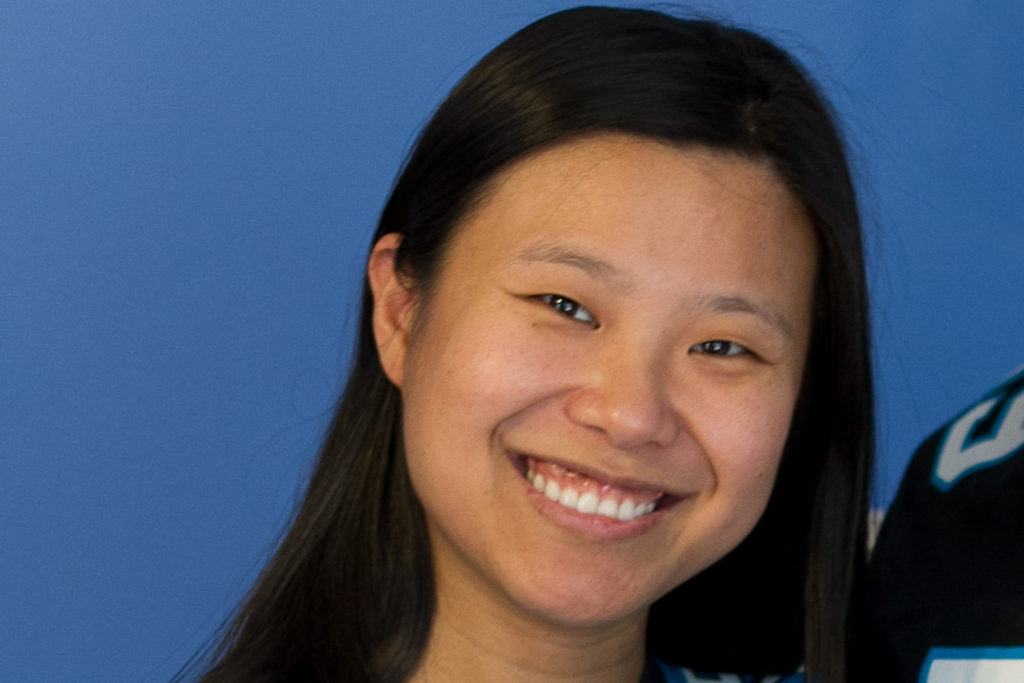
Once upon a time, Carmen Huerta-Bapat’s mother announced she was marrying a California longshoreman and moving the family from Mexico to join him in Los Angeles.
“As a 12-year-old, it was so exciting,” Huerta-Bapat said. “I was too young to think about the implications. When they said we would be moving to California, I could only think about one thing: We were going to Disneyland.”
But instead of a fairytale kingdom, she entered a world where she didn’t know anybody or understand the culture or even speak the same language. “Disneyland” was one of the few English words she knew at the time.
Getting to happily ever after was going to take hard work and sheer will. But, even at 12, she knew she could do it. Her first-grade teacher in Guadalajara, Mexico, taught her that when she refused to accept an assignment the little girl had rushed through so she could go play.
“She marked an X across my paper,” Huerta-Bapat recalled, “and said to me, ‘You know why I did this? Because I know you could to a lot better.’”
Exceeding her own expectations
Huerta-Bapat was reluctant to share that story five years ago when she took on the job as director of Carolina Firsts. The program, created by the College of Arts & Sciences, serves the nearly 20 percent of undergraduates who are the first in their families to go to college. Now she uses her personal experiences to connect to students whose stories of survival and resilience echo her own. She does it to remind them that overcoming adversity should be a source of pride, not shame.
Huerta-Bapat tells them about how hard she worked at her homework. When she started eighth grade, her parents bought her a machine that translated her schoolwork into Spanish, a slow, tedious process.
“In high school, I spent at least six to eight hours every night on my homework,” Huerta-Bapat said. “When I want something, I can be very determined.”
What she wanted was to get an A in every class. And she did.
When she graduated in 1996, that uninterrupted string of As made her the class valedictorian. But her happiness in her achievement wasn’t shared by all her classmates.
“I was the first Mexican valedictorian at my school and there was a revolt against me,” Huerta-Bapat said. “That was my rude awakening to America.”
Undaunted, Huerta-Bapat enrolled at Santa Clara University, a private institution in the heart of Silicon Valley.
Just months before, her father had been laid off from work, and her family was forced to go to a food pantry because they had so little money.
“I remember asking my mom, ‘Do you want me to stay? I can get a full-time job to help with the bills.’ And she said, ‘Absolutely not. You are going. You are going. You are going.’”
Huerta-Bapat has been going ever since.
A final triumph to celebrate

After graduating from Santa Clara with degrees in political science and Spanish literature, Huerta-Bapat completed her master’s degree in political science at Rice University.
She came to Carolina in 2007 when her husband, Navin Bapat, accepted a faculty position in the political science department.
Shortly after they arrived, she began work on her doctorate in sociology – a change in discipline encouraged by a mentor at Rice who detected her “sociologist tendencies.”
The juggling act that followed – holding down a full-time job, being the mother to three young daughters and working on her dissertation – seemed to be too much, Huerta-Bapat acknowledged.
She would have quit, if not for the support of her husband and encouragement from political science professor Frank Baumgartner, her adviser and mentor, and from Abigail Panter, assistant dean of the College of Arts & Sciences.
They all believed in her too much to allow her to quit believing in herself, she said.
Because of them, she said, she was able to walk across the stage during the hooding ceremony at the Smith Center this May.
Her family watched from the audience, holding silver balloons that spelled out “PHD.” When her mother took the balloons to the stage to meet Huerta-Bapat, University photographer Jon Gardiner captured a moment that soon spread across the Internet.
“Seeing those three grandiose balloons makes me feel the weight those letters represent for me, for my three girls, for my husband, for my family and for my first-generation students,” Huerta-Bapat said. In the photo, she also sees “the tangled mess of strings looming in the air” and “how my mom is standing tall and proud right next to me, helping me untangle my life.”
Story by Gary Moss, University Gazette



